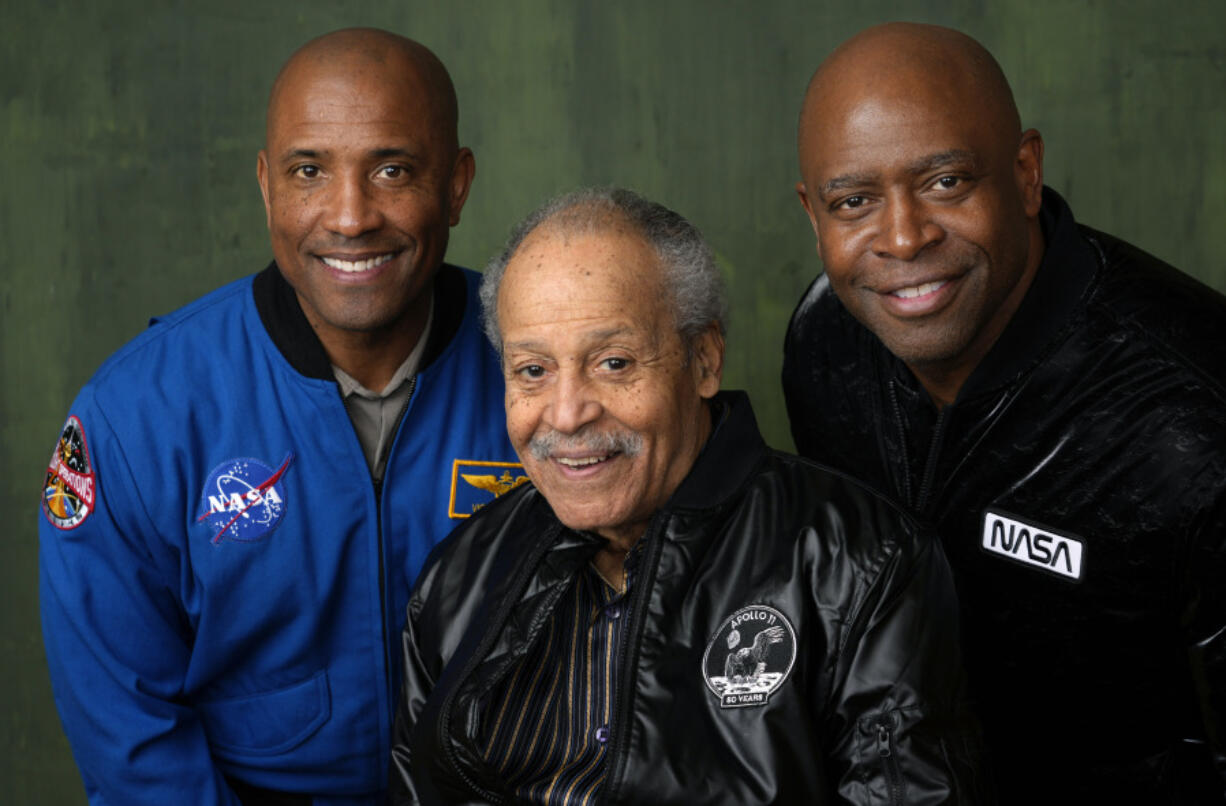NEW YORK — Ed Dwight grew up in segregated 1930s Kansas on a farm on the edge of town. An airfield was within walking distance, and, as a boy, he’d often go to marvel at the planes and gawk at the pilots. Most were flying back from hunting trips and their cabins were messy with blood and empty beers cans on the floor.
“They’d say to me, ‘Hey kid, would you clean my airplane? I’ll give you a dime,’” Dwight, 90, recalls. But when he was 8 or 9, Dwight asked for more than a dime. He wanted to fly.
“My first flight was the most exhilarating thing in the world,” says Dwight, smiling. “There were no streets or stop signs up there. You were free as a bird.”
It would be years before Dwight entertained the idea of himself becoming a pilot. “It was the white man’s domain,” he says. But while in college, he saw in a newspaper, above the fold, an image of a downed Black pilot in Korea.
“I said, ‘Oh my God, they’re letting Black people fly,’” Dwight says. “I went straight to the recruitment office and said, ‘I want to fly.’”
With that decision, Dwight set in motion a series of events that would very nearly lead to him being among the first astronauts. As Dwight progressed through the Air Force, he was handpicked by President John F. Kennedy’s White House to join Chuck Yeager’s test pilot program at Edwards Air Force Base in California’s Mojave Desert.
That fabled astronaut breeding ground, site of “The Right Stuff,” might have turned Dwight into one of the most famous Americans and the first Black man in space. But at Edwards, Dwight was discriminated against even with Kennedy championing him. Dwight eventually departed for civilian life and largely receded from history.
But in recent years, Dwight is finally being celebrated. The new National Geographic documentary “The Space Race,” which premieres today on National Geographic Channel and streams Tuesday on Disney+ and Hulu, chronicles the stories of Black astronauts — and their first pioneer, Dwight.
“When I left, everyone said, ‘Well, that’s over. We got rid of that dude. He’s off the map,’” Dwight said in an interview by Zoom from his home in Denver. “Now it comes back full force as one of these I-didn’t-know stories.”
It wasn’t until 1983 that the first African American, Guion Bluford, reached space. But two decades earlier, Dwight found himself at a fulcrum of 20th Century America, where the space race and the struggle for social justice converged.
In “The Space Race,” astronaut Bernard Harris, who became the first Black man to walk in space in 1995, contemplates what a difference it might have made if Dwight had become an astronaut in the tumultuous ‘60s.
“Space really allows us to realize the hope that’s within all of us as human beings,” Harris says. “So to see a Black man in space during that period in time, it would have changed things.”
Asked if he was bitter about his experience, Dwight exclaims, “God no!”
“Here you get a little 5-foot-four guy who flies airplanes and the next thing you know this guy is in the White House meeting all these senators and congressmen, standing in front of all these captains of industry and have them pat me on the back and shake my hand,” Dwight says. “Are you kidding me? What would I be bitter about? That opened the world to me.”
In 1977, he earned his Master of Fine Arts in Sculpture from the University of Denver. Much of his work is of great figures from Black history such as Louis Armstrong, Duke Ellington and Barack Obama. Several of his sculptures have flown into space, most recently one aboard the vessel Orion. NASA named an asteroid after him.



